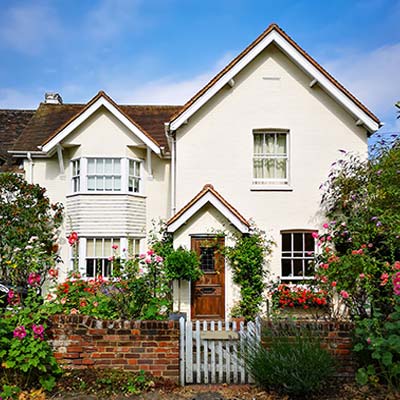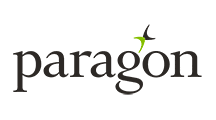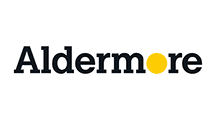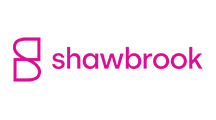Can I get a holiday let mortgage?
We can help you apply for a holiday let mortgage, whether that’s for a traditional holiday let or you need an “AirBnB mortgage” (a mortgage for short-term lettings). We can help you apply in personal name (on your own, or in joint names), or via a limited company.
The key requirement from a lender will be that the income from the rent is greater than the monthly mortgage payment. An average of the existing, or expected, high, medium and low season rent will be used by the lender to assess if a holiday let mortgage is affordable for you.
If you are buying a holiday let property, and you don’t have existing rental figures, a website which advertises holiday lets on behalf of owners can help give you an idea of the rent you could receive.
If you have an offer accepted on a property, or are remortgaging, contact us to get the best holiday let mortgage possible for your situation. Request a call-back here.
Factors that may impact you getting a holiday let mortgage
- Some types of adverse credit
- Not having enough money for a deposit
- The value of the property being less than you expected
We work over 80 mortgage lenders, including:
Compare today's holiday let mortgage rates:
Eligibility for a holiday let mortgage
- First time buyers to experienced landlords
- You must be over 18 years old
- Minimum deposit 20% of the property value
- Upper age limits at application are flexible
- Low personal incomes are accepted
- Property, pension and employment income is OK
Ready to get started?
Your personal advisor will call. Direct lines start 01603. Get today's rates, help, or apply. Lender terms provided in as little as two hours!
What is a holiday let mortgage?
Holiday let mortgages are used to help pay for the purchase or remortgage of a property being let-out as holiday accommodation. You can also get holiday let mortgages for AirBnb style short-term lettings.
Unlike traditional buy to lets, which are rented out on long-term basis, holiday lets are available for a week or a fortnight. Short-term lets, that still fall within the holiday let mortgage lending sector, can accommodate stays of a day, a few days, or longer.
Traditional holiday lets are specifically for holidaymakers. Whereas short-term lets serve people travelling for business, leisure or practical stays, and still require furnished accommodation, they provide alternative accommodation to a hotel.
Holiday let lenders often allow the owner to occupy the property themselves for up to 90 days of the year. There are rules relating to holiday lets, including that guests can’t stay for more than 31 days in a row. Other rules are covered in our guide to furnished holiday lets.
Why invest in a holiday let?
Holiday lets are a great alternative to standard buy to lets. The demand for buy to let mortgages for holiday lets has been growing steadily in line with the trend for ‘holidaying at home’.
Your property needs to be in a suitable location, and to set it up as a holiday let you will need to furnish and equip it, plus be able to manage guest arrivals and departures.
Holiday lets typically offer high yields to investors, which means they may be a lucrative alternative to long-term rentals. This is because, during peak times, a week’s rent can be on par with what you would charge per month on a long term let.
Can I get an AirBnB mortgage?
Yes, ‘AirBnB mortgages’ do exist. Whilst not all holiday let mortgage lenders accept AirBnBs as the security property, the majority do. There are a wide range of lenders and products available. We can help you navigate between them to find a deal that is suited to your needs and is cost effective.
AirBnB mortgage lending is a good example of how lenders adapt and evolve to demand in the market. There was a boom in interest in holidaying at home during the Covid-19 pandemic, which coupled with the growth of short-term letting platform, AirBnB, meant that demand for mortgages in this area of the industry grew.
This influenced holiday let lenders to offer ‘AirBnB mortgages’. This essentially means their holiday let mortgage criteria was relaxed to allow a security property to be rented out for one or a few days and not just as a traditional holiday rental, which are let out for a week, ten days or a fortnight at a time.
You are not restricted to letting your property only on the AirBnB platform, it’s just that the company’s prominence in the short-term let market coined the phrase ‘AirBnB mortgage’.
Get help finding a holiday rental mortgage
Whether its buy to let mortgages for holiday lets, or short-term lets that you need, we can help.
You will receive the highest quality service from our expert advisors, as we are a specialist holiday let mortgage broker. Do not hesitate to get in contact with us via live chat, or free call, to discuss your requirements.
Why choose Commercial Trust?

Apply with ease by phone
It couldn't be easier to secure a holiday let mortgage or AirBnB mortgage with our expert advisors. Ask all your questions and arrange an application on the phone from your sofa.
World class customer service
We'll find you a great deal and take all the admin work off your shoulders, so you can relax while we get your mortgage completed. All the while giving you progress updates.
Lender decision in 2 hours
By contacting you by phone and email you can get help more quickly than in-person services. It's possible to get you a lender decision in principle in as little as two hours after our call.
We can help you with...
- AirBnB and holiday let mortgages
- Properties in England, Scotland, Wales, N. Ireland
- Switch from residential or buy to let mortgage
- Self-occupancy allowed
- Borrowing based on rental income from property
- Borrow up to 80% loan to value (LTV)
- No minimum income options
- Lenders with no upper age limits
- Cash back, free valuation and other incentives available
- Flexible affordability calculations
- Unlimited portfolio sizes
- Remortgage to like for like loan, or to raise capital
- Special Purpose Vehicle (SPV) holiday let accepted
- Trading limited company holiday let accepted
- First time holiday let landlords accepted
- Repayment or interest-only mortgage payment options

"Our client had no holiday let experience, but still got the mortgage they needed"
Holiday lets have risen in popularity and don't require holiday let or landlord experience. You can invest in personal name or through a limited company.
Read moreCosts involved with a holiday let mortgage
Lenders may charge you for the valuation conducted on your property. They often also charge a product fee, sometimes this can be added to the mortgage.
You will need a conveyancing solicitor who will charge fees. Read our guide to choosing a conveyancing solicitor.
We charge a broker fee for our work. You pay in two parts. A booking fee, once we have found you a mortgage deal, at application. The majority of our fee is paid at completion of the mortgage.
Every mortgage comes with monthly mortgage costs based on the mortgage interest rate the lender charges. These are paid on either an interest-only or capital repayment basis.
How to apply for a holiday let mortgage
1
Tell our advisors about the property you are investing in, your needs and circumstances. If you have credit concerns, chat to us about them, so we can put you with the right lender.
2
Your advisor will find the best possible deal from a search of thousands of products. They will get a lender decision in principle, this requires soft credit search (occasionally it is a hard credit search).
3
Your advisor will call to discuss the product they found for you. You will be presented with one mortgage that is the best match for all your needs and offers you the most cost effective option.
4
On your application, your advisor will submit your mortgage application. Your account manager then does all liaison and administrative work to complete the deal, whilst keeping you updated at every step.
Commercial Trust is a member of the Legal & General Mortgage Club.
We chose to work with Legal & General as they are the largest, longest-running club in the UK.
This gives our clients the confidence that their borrowing is with a lender selected by an established and trusted club, who are involved in nearly one in three mortgages processed by intermediaries like us.
What our clients say about us
Frequently asked questions
Holiday let deposits currently need to be at least 20% of the property value. This means the maximum loan to value (LTV) for a holiday let is 80%. Mortgage interest rates are typically lower if you put down a larger deposit, of between 25-40% of the property value.
At present, holiday let mortgage rates are typically higher than standard buy to let rates, which would make like for like borrowing more expensive. However, don’t assume that this puts a holiday let mortgage out of financial reach. Rental income from holiday lets is typically significantly higher than from a standard buy to let, meaning yields are very favourable.
The loan size you can get with a holiday let mortgage will depend on the rental income it receives or is expected to generate. Mortgage lenders will look at an average of high, medium, and low season weekly income throughout the year and offer a loan amount related to this and their maximum loan to value rules. The maximum loan to value for a holiday let mortgage is currently 80%. So, you can borrow up to 80% of the property value and will need at least a 20% deposit.
You cannot get a holiday let mortgage on a holiday lodges. Holiday lodges, timber lodges, caravans or mobile homes are, in essence, temporary structures that can be removed from their location and you typically don’t own the land they sit on when you buy one. Given the property could be transported away, any loan using the property as security, is at significant risk. This is why the lenders we work with will not accept temporary structures as the security for a holiday let - or other - mortgage.
A residential mortgage is designed for properties where the owner occupies the property. If you decide to move out of your home on a temporary basis and to rent it out, you could ask your lender for a consent to let. If you intend to permanently let out your entire house as an AirBnB rather than live in it, then remortgaging on to a holiday let product is a better option.
Holiday let mortgages are not regulated by the FCA (Financial Conduct Authority). A holiday let mortgage is a type of buy to let mortgage. Buy to let mortgages are generally not FCA regulated, because they are seen to be products taken out by businesses, not by consumers.
You may be able to get a holiday let mortgage as a first time buyer. If you are the only applicant on the mortgage and are a first time buyer, there are fewer options. However, you could also consider making a joint application with someone you trust, who has owned property before. This can widen your options. We can help you, no matter which path you choose.
No, a holiday let property does not require a commercial mortgage. Holiday let properties can be financed with a holiday let mortgage. A commercial mortgage is for a property that a business or multiple businesses operate from. Similarly, you can take out a holiday let mortgage through a limited company, this still does not require a commercial mortgage.
You can change a buy to let property into a holiday let, but if your property is mortgaged, you will need to switch from a standard buy to let mortgage to a holiday let mortgage. It is not uncommon for landlords to change their investment strategy and choose to rent a former long-term let on a short-term holiday let basis.However, the dynamic changes and so a different type of mortgage is required. It is straightforward to make the change - just like any remortgage process.
You only pay council tax on a holiday let property if it does not qualify for holiday let business rates. To qualify for business rates a property in England needs to be available to let for a total of 140 nights per year and actually let for at least 70 nights in the previous 12 months. A property in Wales needs to be available to let for a total of 252 nights per year and actually let for at least 182 nights in the previous 12 months.
No, it is not particularly hard to get a holiday let mortgage. A specialist mortgage broker such as Commercial Trust can help you find a suitable product from a wide choice. Whilst holiday let mortgages are a more specialist type of borrowing, which means there are fewer lenders than for residential mortgages, there is still plenty of lenders offering them. First time landlords can secure a holiday let mortgage, but if you own your own home this presents more lender options.
It can be very worthwhile owning a holiday let as they can attract high yields. There is a greater level of administration because you have a regular turnover of tenants. This can be outsourced, but you would need to factor the costs of that into your profit and loss. Initial costs are likely to be higher, as holiday lets must be fully furnished prior to renting and to stand out against other holiday lets, you might invest in special extra touches and quality of décor and furnishings. However, holiday lets can be significantly more profitable than standard buy to let properties, and can make holiday lets a very lucrative investment.
A residential mortgage is not suitable if you are permanently letting out your property on a short-term/holiday let basis, so a holiday let mortgage is the ideal way to secure borrowing.
You will need a specialist holiday let mortgage, if you are buying an AirBnB property. There are a number of providers who will offer AirBnB mortgage lending, but each lender has different criteria, so the easiest way to find out which lender is suited to your needs is to speak to a specialist broker like Commercial Trust.










